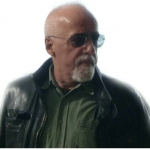My earliest years were spent on a farm. My dad was a farmer. In their own way, farmers are experts in relationships and sustainability. And so when I read a blog post last week on agriculture and creativity, penned by the renowned writer (and blogger, too!), Paulo Coelho, immediately my mind resurfaced strong feelings for the life and wisdom of farmers.
I’ve copied Coehlo’s 5-part post (in italics) below. After each part, I add a couple thoughts of my own, reflecting on how it all applies to the craft of mediation and bridging differences between people.
=========================
Agriculture and Creativity
Ploughing the field
The moment the soil is turned, oxygen penetrates places it was unable to previously. This process of interior revolution is very important because, just as the field’s new look will see sunlight for the first time, a new assessment of our values will allow us to see life innocently, without ingenuity. A good creator must know how to continually turn over his values, and never be content with that which he/she believes he/she understands.
[Ben: forever be learning, humble, open to new ways and experiences of mediating conflict]
Sowing
All work is the fruit of contact with life. He/she never knows, at the outset, which things will be important to him in the future, so the more intense his life is, the more possibilities he/she will create for an original language. If he/she tries to imitate or control his inspiration, he/she will never obtain that which he/she desires. He/she must allow his life to sow the fertile soil of his unconscious.
[Ben: do your best, let go of outcomes, diversity is survival, collaborate with others, yet welcome chance the unseen collaborator in the resolution mix ]
Growth
There is a time in which the work writes itself, freely, at the bottom of the author’s soul before it dares show itself. The creator must respect the time of gestation, although he/she knows just like the farmer that he/she is only partially in control of his field; it is subject to drought and floods. But if he/she knows how to wait, the stronger plants, which can resist bad weather, will come to light with great force.
[Ben: stay positive to the journey, interrupt your busy mind with silence, silence is golden, allow space for reflection, for the associative mind to do its thing, to listen]
The Harvest
The moment when a person manifests on a conscious plane he/she sowed and allowed to grow. If he/she harvests early, the fruit is green, if he/she harvests late, the fruit is rotten. Every artist recognizes the arrival of this moment; although some aspects may not have matured fully, some ideas not be crystal clear, they reorganize themselves as the work is produced. Without fear and with great discipline, he/she understands that he/she must work from dawn to dusk, until the work is finished.
[Ben: be present, with the flow, trust your skills and experience, sense the new possibilities for resolution and then act swiftly ]
Sharing
And what to do with the results of the harvest? Again, we look to Mother Nature: she shares everything with everyone. An artist who wishes to keep his work to himself, is not being fair with that which he/she received from the present moment, nor with the inheritance and teachings of his forefathers. If we leave the grain stored in the granary, it will go bad, even though it was harvested at the right time. When the harvest is over, the time comes to share, without fear or shame, your own soul.
[Ben: live in community, whatever your craft, wherever you may be, people plant and place ]
=================================
There’s a wee bit of irony for me, in referencing Paulo Coelho. I read The Alchemist (his best known book) many years ago. It was through social media guru Chris Brogan‘s recent interview of him, though, that I’m getting re-acquainted with Paulo, a wise elder, someone unafraid to respect the meaning of life, as in this video (video not displaying? click here)
We can learn much from others, unlike us. Don’t you agree? What have you learned from other fields of practice that you now apply in yours? Leave a comment.


Speak Your Mind